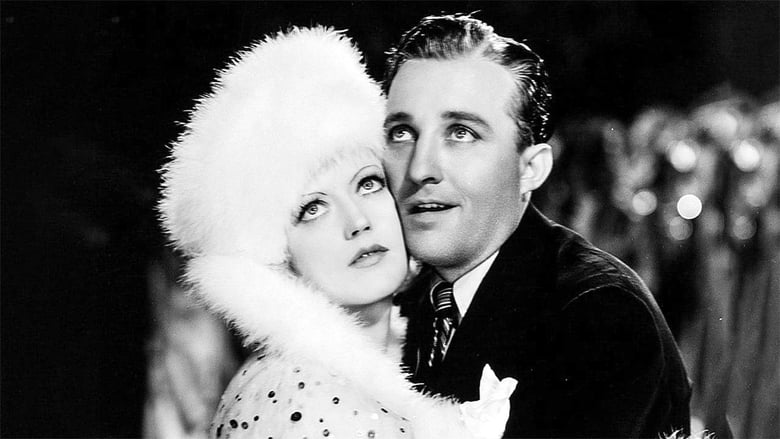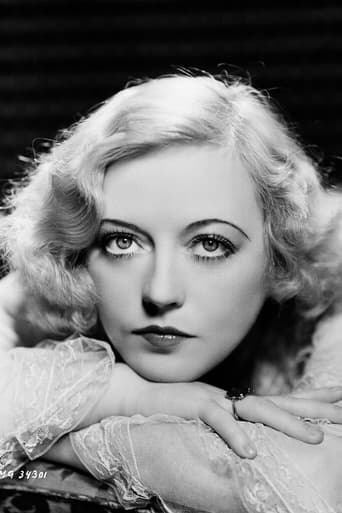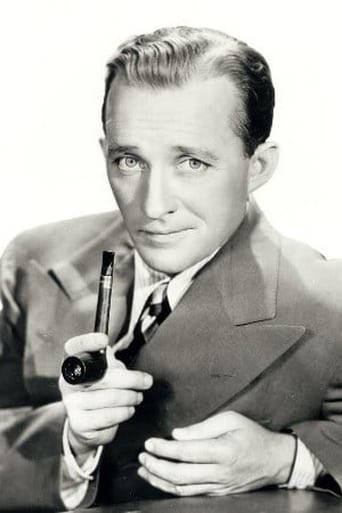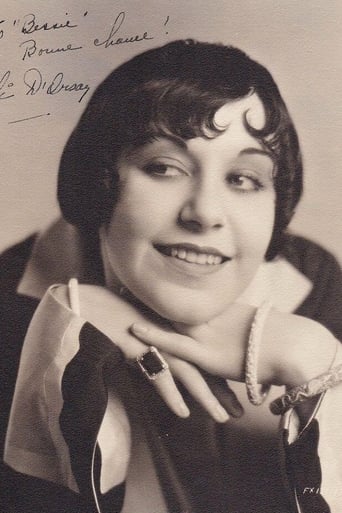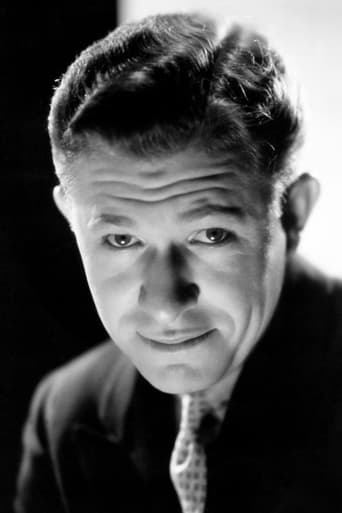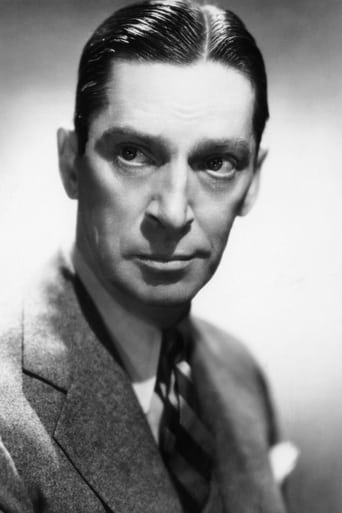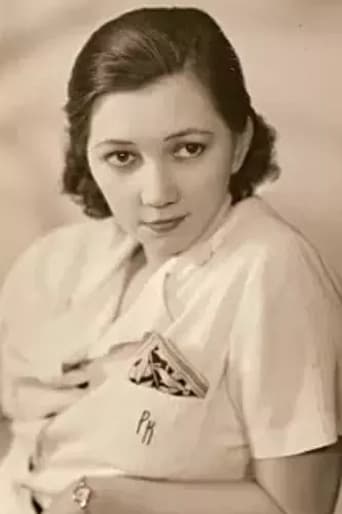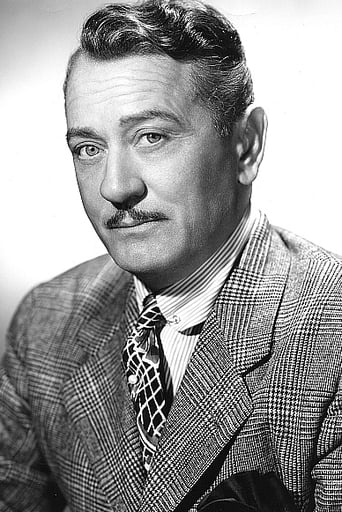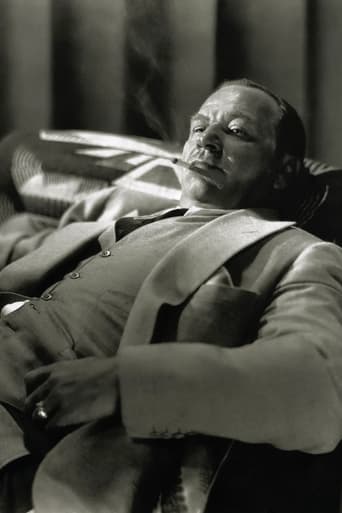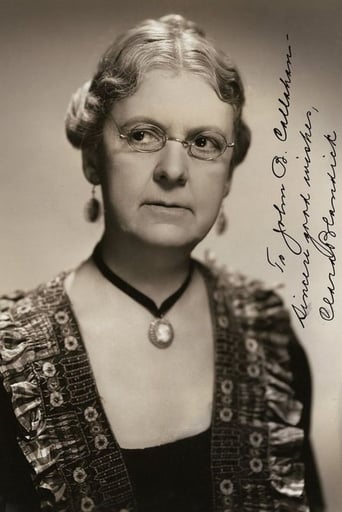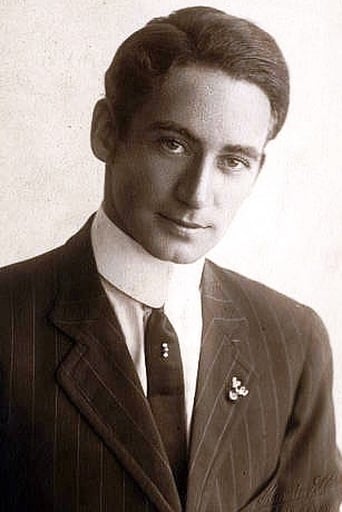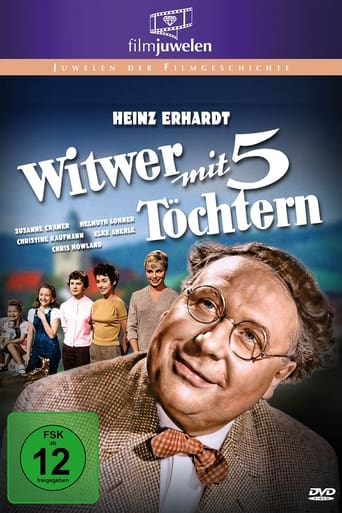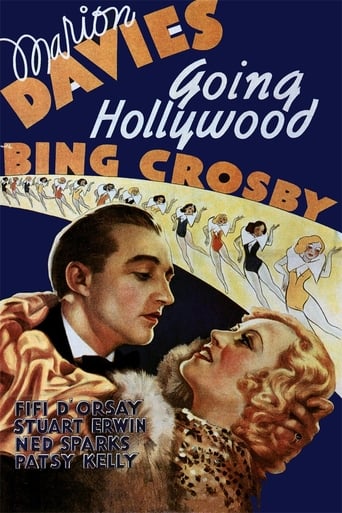
The film tells the story of Sylvia, a French teacher at an all-girl school, who wants to find love. When she hears Bill Williams on the radio, she decides to go visit and thank him. However, difficult problems lay ahead when Lili gets in the way.
Similar titles
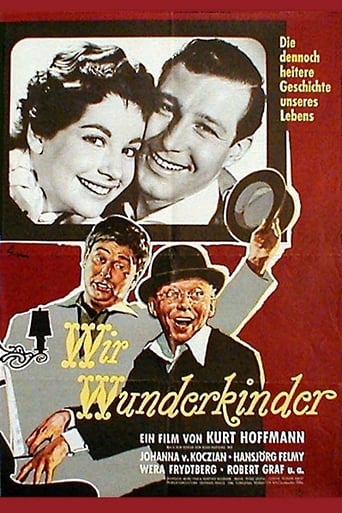
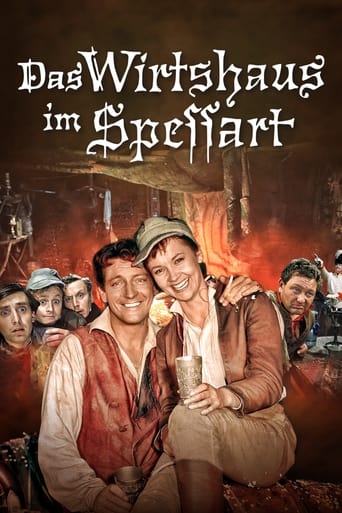
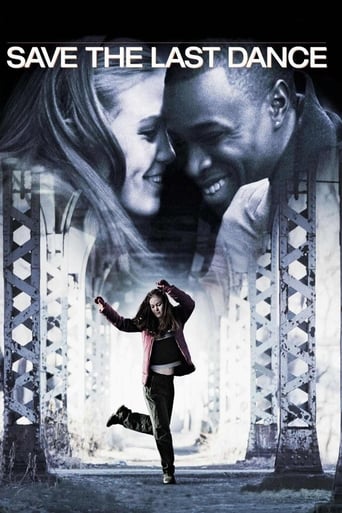
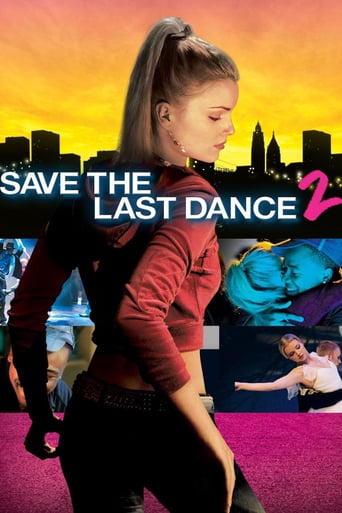
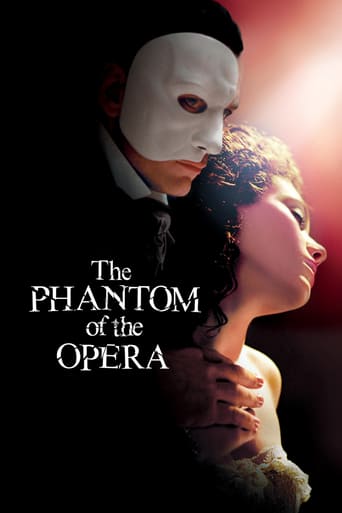
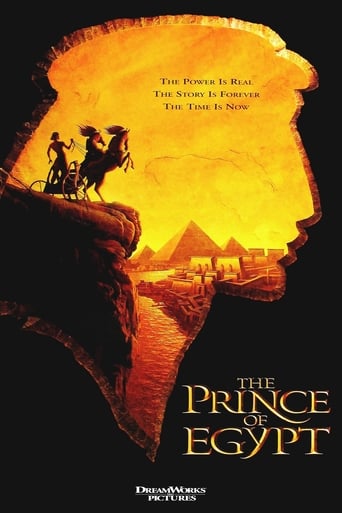
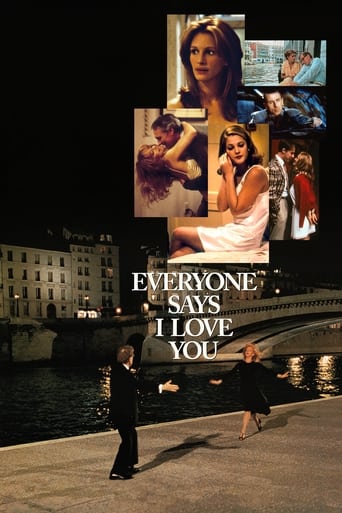
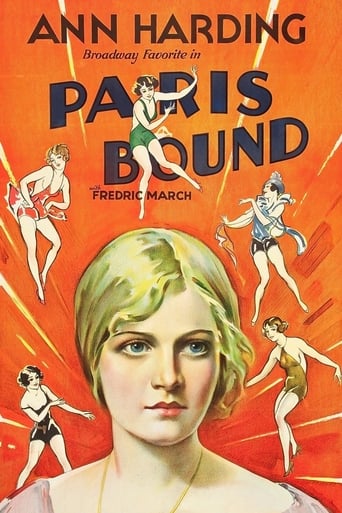
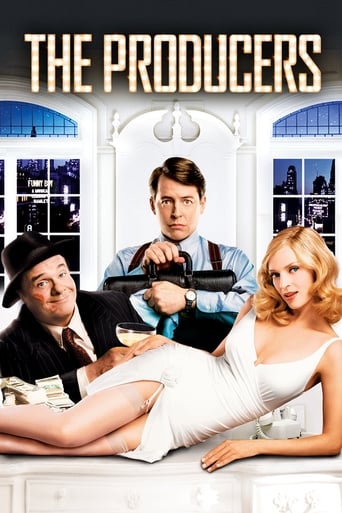
Reviews
I think this is a new genre that they're all sort of working their way through it and haven't got all the kinks worked out yet but it's a genre that works for me.
The Worst Film Ever
Sorry, this movie sucks
The acting in this movie is really good.
The actress Marion Davies, when she is now remembered at all, is remembered as the young(ish) mistress of William Randolph Hearst, the newspaper magnate who more or less bankrolled her Hollywood career. As such, it's widely assumed that she had no talent, except in the eyes of the devoted Mr Hearst. This at least was the impression given by her supposed parody in Citizen Kane, an image which though indirect has tarnished her memory no end. But whatever the truth about her, the amount of money thrown into her productions means they afford at least a treat or two.Going Hollywood, for example, pairs her with a young Bing Crosby. It's clear that at this point the studio didn't really think of him as much more than a good-looking crooner and weren't really pushing his personality, but he certainly adds musical credence to the production, and his laid-back sense of humour is occasionally allowed a tease or two. Another delight of the cast is 1930s comedy institution Ned Sparks, who with his inimitable manner can make even the simplest of lines sound funny. There's a real no-no however when a jumped-up Stuart Erwin vehemently puts Sparks down, a moment which simply looks embarrassing. There ought to have been a rule in Hollywood – nobody gets the better of Ned Sparks.The story of Going Hollywood was by the very prestigious 30s writer Frances Marion (she also wrote The Champ, among others), and the screenplay is by acclaimed romcom expert Donald Ogden Stuart. It is of course, an absolute slice of silliness, the opening business with a rebellious Davies giving up her job as a teacher as if it was something she had been forced into setting the tone for things to come, but Frances Marion's simplistic tale of a girl making it big in movies is the very quintessence of MGM dreaminess, and Stuart's sharp wit gives it a nice gloss. Logic and depth barely matter in a fairytale such as this.The list of big names continues, with music by Nacio Herb Brown and Arthur Freed (you know, of Singin' in the Rain fame). The songs are pretty and the smooth arrangement suits Crosby well. What is nice though is the way they are used. Freed's lyrics only relate vaguely to the material, but each number is nevertheless woven into the narrative in a number of interesting ways. "Beautiful Girl" is part of a radio broadcast which a pyjama-sporting Crosby delivers while doing his morning business. "We'll Make Hay while the Sun Shines" takes place in a dream sequence. In other words, the narrative does not take a break for the music, and the songs are never merely presentational performances. This may have been a contribution of Walter Wanger, who always tended to oversee a flowing style in his pictures.Then again, it might also have been influenced by director Raoul Walsh (incidentally a pal of Hearst) who, like in the musical numbers, never made movies as a presentation. Walsh's camera is almost always right inside the action, either looking in on it (the number of instances of characters looking into lens is high in Going Hollywood) or looking outwards (as in several point-of-view shots). Walsh likes to place his audience where his characters are, especially at key moments, giving a real intensity to the scenes between Davies and Crosby. This closeness of Walsh's style gives a real cramped feeling to many of the interiors, and a sense of romantic escapism lies in shots like Davies staring at the stars out of her bedroom window or Crosby gazing up at the cavernous roof of the railway station. In a funny kind of way these moments link to Walsh's westerns, where the homesteads were always dull and squalid while the plains were vast and inviting.So Going Hollywood sees its star supported by a big wall of talent. But what about Ms Davies herself? She is really not all that bad. Her style is quite reserved, not at all vulgar or exaggerated as one might expect, and she does have a flair for comic expression which in this kind of picture makes up for her lack of a good singing voice. She certainly doesn't deserve the reputation given to her by Citizen Kane (which Orson Welles belatedly stated was not intentional). Still, there is a reason she wasn't an especially popular star and needed the support of her millionaire boyfriend. If you look at the most successful performers of the depression era, they are people like Will Rogers, Marie Dressler and Wallace Beery, who what they lacked in looks they made up for in rugged charm. An actress who was merely pretty and competent was hardly deemed special in 1933.
Marion Davies is a young woman who quits her job as a teacher and is content to chase a singer (Bing Crosby) in "Going Hollywood," a 1934 film also starring Stuart Erwin, Fifi D'Orsay, Patsy Kelly and Ned Sparks. Davies fancies herself in love with a crooner and follows him to LA, where he's about to make a picture with a temperamental French actress (D'Orsay) who is also his current girlfriend.Before becoming the singer of "White Christmas," Bing Crosby was an innovative performer, the first so-called "legit" singer to cross over into popular song. At one point in his career, Crosby actually was offered the title role in Verdi's "Rigoletto." Hearing him in the '20s and '30s, it's easy to understand why. Though Crosby's voice was always fluid and beautiful, he was less easygoing and took many more vocal risks back in the day, as evidenced in this film. The robustness with which he sang, and his beautiful high notes are sensational. The most striking number he does is "Temptation" with the camera focusing from time to time on a close-up of D'Orsay's face. The film is nearly all music, but nothing as good as "Temptation": "Our Big Love Scene," "Beautiful Girl," "Just an Echo in the Valley," etc.There is a wonderful scene done by the Radio Rogues, who play techs in the film where they improvise a radio program that references stars of the era such as Morton Downey, Russ Columbo, Rudy Vallee and Kate Smith.Marion Davies at this point was 36 - way, way, over the hill for a lead actress in those days - and she requested both Crosby and D'Orsay to be in the film. Hearst didn't want either one and had Lili Damita in mind for the D'Orsay role. He relented when others told him Crosby would be good for Davies' career. Though Davies will eternally get a bad rap because of the untalented Susan in "Citizen Kane," she was in fact a lovely actress and a very good comedienne. She couldn't sing and her dancing was from the Ruby Keeler Hoofer School - but I actually found her lighter on her feet than Keeler. That obviously was a style of tap back in those days that thankfully is gone.This is a very entertaining film, and if you want to hear Crosby at his finest, this is one of the films that is a must. He is remembered as a wonderful singer and successful actor today, but in actuality, his contribution to music was much greater than is realized now.
MARION DAVIES may not have been the inspiration for the lady in Citizen Kane's life, but she sure comes close to making us believe Orson Welles based his story on the Hearst/Davies relationship.As seen here, Miss Davies looks like Joan Crawford with bleached blonde hair and a fixed stare in her starry eyes. She has a big, hearty smile but when it comes to singing, dancing and acting, her talents are scarcely there. She is clunky, to say the least, in her dancing moments and has a voice as smooth as sandpaper when she tries to sing with Bing. As for her acting--well, let me put it this way, three strikes and you're out.As for BING CROSBY, he does very well in this early film, sounding every bit like the classy crooner he was in those days. His talent is evident throughout, overcoming the pedestrian script with his own brand of casual charm. Too bad he had no one with corresponding skills to play opposite. He sounds especially mellow with his rendition of "Temptation" and a couple of other tunes are pleasantly rendered.But let's face it, this is one dated, clunky musical that falls flat in the attempts at laughter even though Patsy Kelly is present to deliver her own brand of humor. Stuart Irwin is wasted in a supporting role as a hapless producer. The less said about Fifi D'Orsay and her French accent the better. She's another triple threat.Highly recommended that you skip this one and catch Bing in one of his better films instead.
When she discovers that the crooner she adores is GOING HOLLYWOOD, a liberated school teacher dogs his steps all the way to the Studio sound stages.Marion Davies tries her hardest to entertain in this tinsel town spoof, but neither the script (based on a story by the celebrated Frances Marion) nor the direction give her much leeway. Raoul Walsh seems a curious choice to direct this kind of film, but he must have had William Randolph Hearst's approval or he never would have been given the assignment. The trouble is that Marion has little chance to be anything other than sweet & pleasant - when finally given the opportunity to do a wicked spoof of co-star Fifi D'Orsay, she's terrific. Unfortunately, moments like that come all too rarely.Leading man Bing Crosby comes off rather better, showing the casual charm that would make him a huge star. And he gets to sing some fine tunes by Nacio Herb Brown & Arthur Freed, including the classic Temptation' and the fun We'll Make Hay While The Sun Shines.' Although his character is a bit of a cad, Bing never fails to deliver the goods to the audience.A troika of character performers add sparkle to the proceedings: earnest Stuart Erwin as a film producer; caustic Ned Sparks as a dictatorial director; and tomboy Patsy Kelly as a plain-talking gal trying to break into the movies.Movie mavens will spot Clara Blandick & Nora Cecil as two of the ossified instructors at the girls' school, and Sterling Holloway as a recording mike technician - all uncredited.Oddly, this film about the Hollywood movie business takes time out to poke fun at contemporary radio stars. Mimic singers & impressionists, The Radio Rogues will provide a smile to viewers with very long memories.***********************Time has not dealt kindly with Marion Davies. Almost forgotten today, when remembered at all it is usually as a sort of footnote to history or object of scandal. Her life certainly was colorful, and as chatelaine of America's most amazing private estate she did circulate amidst powerful circles. But to remember her as only the bimbo blonde mistress of the country's mightiest media baron is patently unfair.While much of the blame can go to Orson Welles' spoof of Davies in CITIZEN KANE (which he was to admit he regretted towards the end of his life) it must be stated emphatically that Marion was not a no-talent actress with few friends & even fewer brains, whose career was destroyed by her stammer, leaving her to spend lonely years in great, hulking empty castles.In reality, Davies was a bright, vivacious lady who charmed & captivated such diverse guests as George Bernard Shaw & Winston Churchill throughout her 33-year liaison with Hearst. Adored by her friends and a fierce cadre of fans, Davies was renowned for her tireless generosity and charitable good works. Her speech impediment never affected her screen acting and her undeniable talent was evident to any who were willing to assess her performances honesty and look past the scandal.Davies had to have been embarrassed by the Hearst empire's relentless pushing of her career. She knew this left her open to ridicule & mockery, doubtless contributing to her scarcely concealed alcoholism. But she eventually relinquished her film pursuits in order to care for the aging Hearst, and after his death in 1951 she showed herself to be an astute businesswoman during the remaining ten years of her life.It is only now, with the passage of much time & the restoration of her old movies, that it is becoming easier to acknowledge the contributions & cinematic expertise of Miss Marion Davies.
Top Streaming Movies











